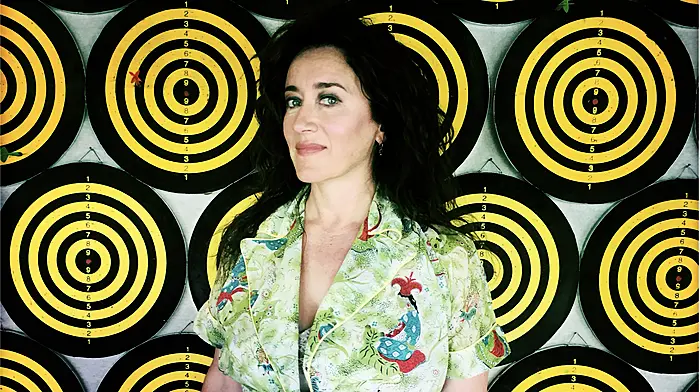Linda Hamilton
Cognitive behavioural therapist
MARY is dating Mark. She makes eye contact with a stranger and thinks, ‘He’s hot, hotter than Mark. Maybe I could be with someone more attractive.’
Mary feels a jolt of anxiety. The thoughts feel important, urgent. She asks herself: ‘Does this mean I’m in the wrong relationship? Would I have noticed him if I loved Mark? What if I spend the rest of my life with the wrong man?’
As she continues to ruminate, her anxiety rises. To cope, she googles if it’s normal to find other people more attractive than your partner. Some comments reassure her, but others make her feel more panicky.
She asks her friends if they think Mark is right for her, but their responses don’t quench her doubts.
Mary starts checking Mark’s appearance in more detail. She checks her emotions when she is in his company. She looks at other guys to see if she finds them more attractive. She then does the opposite, avoiding places where she might see attractive people in an effort to avoid the thoughts.
Agonising doubts
Mary’s problem isn’t that she is anxious, or self-centred, or insecure, or in the wrong relationship. Mary has OCD.
The stereotype of the OCD sufferer is of someone performing overt compulsions like hand-washing. However, many sufferers obsess over unwanted thoughts but don’t perform obviously visible compulsions. What if I’m a paedophile (POCD)? What if I harm someone (harm OCD)? Or in Mary’s case, what if I’m in the wrong relationship (relationship OCD)?
ROCD is characterised by agonising doubts and uncertainty about your relationship. This article will focus on romantic relationships, although you could have ROCD about any important relationship in your life (your children, your parents, etc).
Common ROCD obsessions include: What if I don’t really love my partner? What if my partner doesn’t really love me? Is s/he ‘the one?’ What if I am not as attracted to my partner as I should be? Would I be better off with someone else? Would s/he be better off with someone else? What if my partner doesn’t know me well enough and realises too late I am not the person s/he thought I was? Is this ROCD or am I just with the wrong person?
Compulsions
Reassurance-seeking is a common compulsion – asking others to rate your relationship or your partner’s personality and attractiveness, listing reasons why you are right for each other, doing internet research to confirm your problem is ROCD and not the relationship.
Avoidant compulsions are equally common – trying not to notice attractive people, avoiding being with people that trigger the thoughts, ending a relationship to neutralise the anxiety, avoiding watching romantic movies or TV shows, and so on.
Checking compulsions are another feature of ROCD – eg checking your partner’s appearance to see if you are attracted to them and focusing in on physical imperfections, checking if you are enjoying kissing and sex, being intimate with them solely to check you are aroused and enjoying it, testing your feelings by flirting with others or checking dating sites, checking your emotions and how you feel about your partner’s personality (‘Am I bored right now?’ ‘Would I be feeling this way if I really loved him?’).
Another compulsion is confessing, which you feel compelled to do to ease guilt or uncertainty – for example, confessing your doubts about the relationship, confessing you have had sexual thoughts about others, confessing about mistakes you made before you met your partner in case they don’t really ‘know’ you.
Treatment is available
Like all OCD themes, mental compulsions are a constant – for example, compulsively ruminating on how you feel about your partner and trying to figure out how in love you are or how funny you find them, comparing your relationship to previous relationships you had, mentally reviewing the time you spent together and the state of your relationship, and so on.
OCD causes terrible pain but it is very treatable. Unfortunately, it’s often misdiagnosed, especially when the obsession pertains to relationships.
Some doctors may simply think the person is anxious, depressed or stressed. Worse, some therapists may think the relationship is the problem, as opposed to seeing the thoughts as a product of compulsive rumination.
My next column will revisit this subject, focusing on certain thinking errors, or cognitive distortions, commonly seen in ROCD.
Linda Hamilton is a Kinsale-based cognitive behavioural therapist.
If you would like to get in touch with her, call 086-3300807
For more information, go to www.kinsalecbt.com








